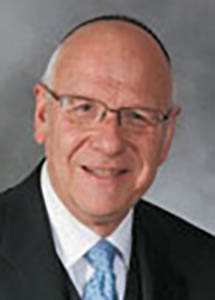
Parshat Vayetzei
The final chapters of the Book of Hoshea, from which our haftarah is taken, reflect the basic theme of the entire book, that of teshuva, repentance, which is why the last verses are included in the haftarot of Shabbat Shuva and Yom Kippur. Although Hoshea, a contemporary of the navi Yeshayahu, addresses his words primarily to the soon-to-be-exiled northern kingdom (as he does in this haftarah), the region in which he himself lived, he has choice words of admonition to the southern kingdom of Yehuda as well. The opening verse of today’s haftarah brings us back to the era of the forefathers and to the events recorded in our sedra, as he reminds the people of how Yaakov fled to Aram where he worked for a wife by protecting, “shamar,” the sheep. Using that same root word, Hoshea reminds the wayward nation that God, through His prophet, “worked” to release Israel from the Egyptian bondage and saw that they were protected, “nishmar,” throughout their travels in the wilderness. And yet, Israel bemoans the prophet, has forgotten Hashem’s protection and kindnesses, and has turned to other “gods.”
The selection goes on to detail the nation’s rebelliousness, which has condemned them to suffer God’s punishments. The harsh words of the navi that Hashem, the protector of His “sheep,” will be forced to become its destroyer (“…I shall devour them like a lion…”), stands in contrast to the words of Yaakov to Lavan that, in all the years, he never brought back a torn lamb to his father-in-law.
And yet, despite the prophet’s depiction of Israel’s failure to remain faithful, he closes with Israel’s opportunity to repair the rift… teshuva. The cry “shuva Yisrael, return O Israel,” echoes the word of God to Israel/Jacob in the parsha, “Shuv el eretz avotecha, return to your ancestral land,” for, in truth, only with the return to the Land of Israel would God’s promise to Jacob be realized.
These words of Hashem to Jacob echo in our ears today as the promise made to Israel holds true today as well.
By Rabbi Neil N. Winkler









